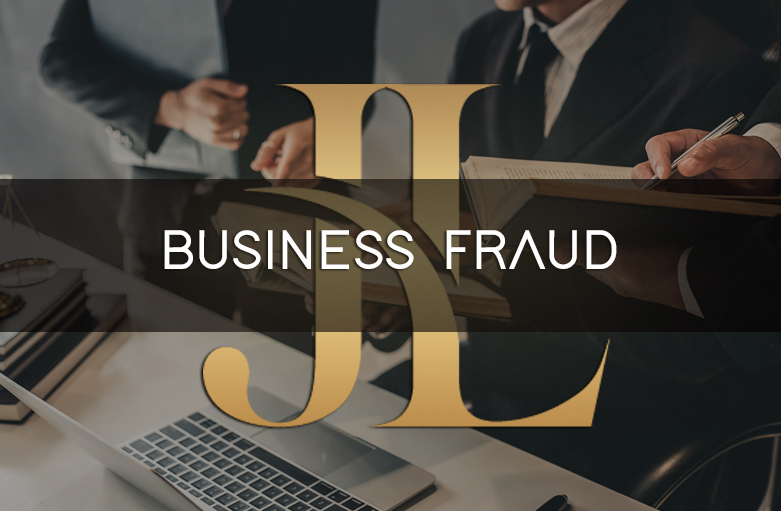
Comprehensive Guide to Business Fraud: Protecting Your Business and Legal Recourse
At our law firm, we understand the importance of safeguarding your business against fraudulent activities. Business fraud poses significant risks to companies of all sizes, leading to financial losses, damaged reputations, and even legal consequences. In this comprehensive guide, we delve into the world of business fraud, providing valuable insights and strategies to help you protect your business and navigate the complex legal landscape.
Understanding Business Fraud
Business fraud encompasses a range of deceptive practices committed against organizations. It can occur internally, involving employees, or externally, involving third parties. Regardless of the source, the impact can be devastating. Let’s explore some common types of business fraud:
1. Asset Misappropriation
Asset misappropriation refers to the unauthorized or fraudulent use of company resources for personal gain. This may include theft of cash, inventory, or other valuable assets. Perpetrators often exploit their positions of trust within the organization to carry out these activities.
2. Financial Statement Fraud
Financial statement fraud involves manipulating financial records to deceive stakeholders. This can include inflating revenues, understating expenses, or misrepresenting the company’s financial position. Such fraudulent activities can mislead investors, creditors, and other interested parties.
3. Corruption and Bribery
Corruption and bribery occur when individuals use their positions to gain undue advantages or influence through illicit means. This can involve offering or accepting bribes, kickbacks, or other incentives to obtain preferential treatment, contracts, or business opportunities.
4. Intellectual Property Theft
Intellectual property theft involves the unauthorized use, reproduction, or distribution of a company’s intellectual assets. This may include trade secrets, patents, copyrights, or trademarks. Competitors or unscrupulous individuals may seek to gain an unfair advantage by stealing and exploiting these valuable assets.

Recognizing the Warning Signs
Detecting business fraud early is crucial for minimizing its impact. By staying vigilant and recognizing the warning signs, you can take proactive measures to mitigate risks. Here are some indicators that may signal potential fraudulent activities within your organization:
1. Unexplained Financial Discrepancies
Keep a close eye on your company’s financial statements and records. Unexpected discrepancies, unaccounted expenses, or irregularities in cash flows could indicate fraudulent activities.
2. Excessive Control or Secrecy
If certain individuals within your organization exhibit excessive control over financial matters, lack transparency, or resist independent audits, it may be a red flag. Fraudsters often seek to maintain tight control to cover their tracks.
3. Abnormal Employee Behavior
Unusual behavior by employees can be indicative of fraudulent activities. This may include sudden displays of wealth, unexplained absences, or a reluctance to take vacations. Be alert to any changes in employee conduct that seem suspicious or out of character.
4. Disgruntled Employees or Whistleblower Reports
Pay attention to employee grievances and whistleblower reports. Dissatisfied employees or those who have witnessed fraudulent activities may come forward with valuable information. Foster an environment that encourages transparency and reporting without fear of reprisals.
SEE WHAT CLIENTS ARE SAYING ABOUT JASON LANDESS & ASSOCIATES
Preventive Measures to Safeguard Your Business
Protecting your business from fraud requires a proactive approach. Implementing preventive measures can significantly reduce the likelihood of falling victim to fraudulent activities. Consider the following strategies:
1. Robust Internal Controls
Establishing strong internal controls is crucial to prevent and detect fraud. This includes segregation of duties, regular monitoring of financial transactions, and implementing strict authorization processes. Conduct periodic audits to ensure compliance and identify potential vulnerabilities.
2. Employee Education and Training
Educate your employees about the risks and consequences of business fraud. Offer training programs to enhance their awareness and provide guidelines on reporting suspicious activities. Encouraging a culture of integrity and accountability is vital for deterring fraudulent behavior.
3. Whistleblower Hotline
Establish a confidential whistleblower hotline to encourage employees to report suspected fraudulent activities. Assure them that their identities will remain anonymous and that there will be no retaliation. Timely reporting can enable swift action and minimize the impact of fraud.
4. Due Diligence in Business Relationships
Before entering into partnerships, collaborations, or business relationships, conduct thorough due diligence. Verify the reputation and credibility of potential partners, suppliers, and contractors. This helps reduce the risk of being involved in fraudulent schemes or associating with untrustworthy entities.

Legal Recourse for Business Fraud
In the unfortunate event that your business falls victim to fraud, pursuing legal recourse is essential to seek justice and recover losses. Consult with an experienced business litigation attorney to explore your options. Here are some potential legal avenues:
1. Civil Lawsuits
You may file a civil lawsuit against the individuals or entities responsible for the fraud. This allows you to seek compensation for financial losses, damage to your reputation, and other related damages.
2. Criminal Prosecution
If the fraud involves criminal activities, you can report the incident to law enforcement agencies. They will conduct an investigation, and if sufficient evidence is found, criminal charges may be filed against the perpetrators.
3. Alternative Dispute Resolution
In some cases, alternative dispute resolution methods like mediation or arbitration can offer a faster and more cost-effective resolution. Consult with your attorney to determine the most suitable approach based on your circumstances.
Conclusion
Business fraud poses significant risks to organizations, but by taking proactive measures, you can protect your business and minimize the impact of fraudulent activities. Vigilance, strong internal controls, employee education, and timely legal action are key components of an effective fraud prevention strategy. By implementing these measures and staying informed about emerging fraud trends, you can safeguard your business’s financial well-being and reputation.
Remember, this guide is just the beginning of your journey towards protecting your business against fraud. Call Jason Landess & Associates to tailor these strategies to your specific needs and ensure comprehensive protection. Together, we can create a business environment that promotes integrity, trust, and long-term success.
